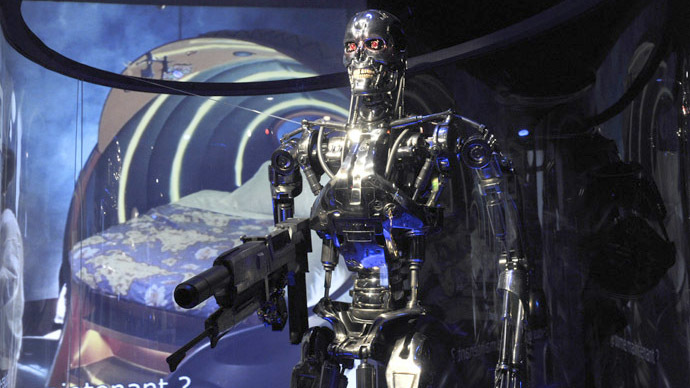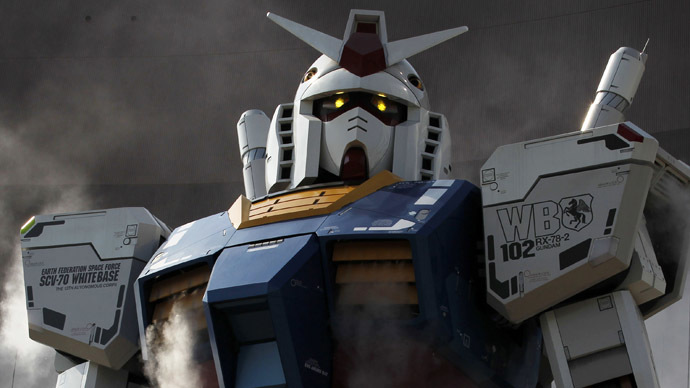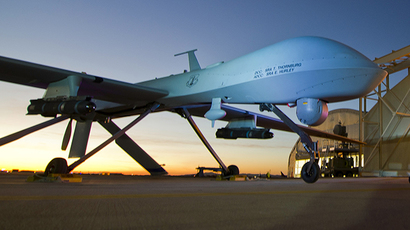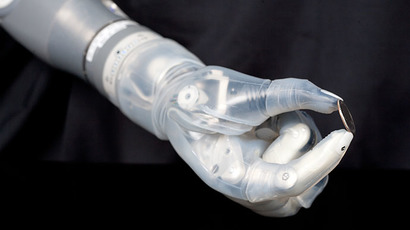Terminator judgment day? UN mulls preemptive ‘killer robot’ ban

The first multinational discussions on the rising specter of ‘autonomous killer robots’ is being hosted by the United Nations to consider whether the global community should ban the new technology – before it’s too late.
Acting Director-General of the UN Office in Geneva Michael Møller
said the time to take action against killer robots is now.
“All too often international law only responds to atrocities
and suffering once it has happened,” he said. “You have
the opportunity to take pre-emptive action and ensure that the
ultimate decision to end life remains firmly under human
control."
The Campaign to Stop Killer Robots, an international
coalition of non-governmental organizations, successfully
petitioned the UN to consider the question of ‘autonomous weapons
systems’ in a Convention on Conventional Weapons (CCW) meeting.
One of the founders of the NGO, Nobel Peace Laureate Jody
Williams, is urging a ban on “autonomous robots,” which
the US Pentagon defines as weapons that "once activated, can
select and engage targets without further intervention by a human
operator."
“Talking about the problems posed by these future weapons is
a good place to start, but a ban needs to be put in place
urgently if we are to avoid a future where compassionless robots
decide who to kill on the battlefield,” Williams said, as
quoted by Forbes.
Williams teamed up with 19 other Nobel Peace laureates to demand
a ban on the lethal technology. At the same time, Human Rights
Watch (HRW), another participant of the Campaign, released its
own report detailing the potential threats posed
by machines that have no ability to implement “human judgment” in
the heat of the battle.
“In policing, as well as war, human judgment is critically
important to any decision to use a lethal weapon,” said
Steve Goose, arms division director at Human Rights Watch, before
the talks. “Governments need to say no to fully autonomous
weapons for any purpose and to preemptively ban them now, before
it is too late.”

HRW also warned of the moral and legal implications in the event
that an autonomous robot fails – as will eventually happen - to
carry out its assigned military task, with catastrophic results
for innocent civilians.
“Replacing human soldiers with ‘killer robots’ might save
military lives, but at the cost of making war even more deadly
for civilians,” wrote Bonnie Docherty, senior researcher in
the arms division at HRW. “To preempt this situation,
governments should adopt an international prohibition on the
development, production, and use of fully autonomous
weapons.”
“These weapons should be stopped before they appear in
national arsenals and in combat.”
Despite the potential risk posed by the technology, many
governments remain ambiguous on how they would address the issue.
The UK’s Foreign Office, for example, told Amnesty International
in a letter last June that while it was “committed to
upholding international humanitarian law,” it would not
commit to a course of action that might deny the Armed Forces
“legitimate and effective capabilities.”
At the same time, the United States has demonstrated the dark
side of autonomous weapon systems with its international drone program, which has led to the death of
hundreds of civilians.
Oversight on the use of drone warfare in other government
agencies, like the CIA, remains tenuous at best, while the US
government, as well as other countries, including Israel and
China, regularly exports these weapons to other nations.
Human rights groups are now concerned what will happen once the
technology for killer robots is perfected.














